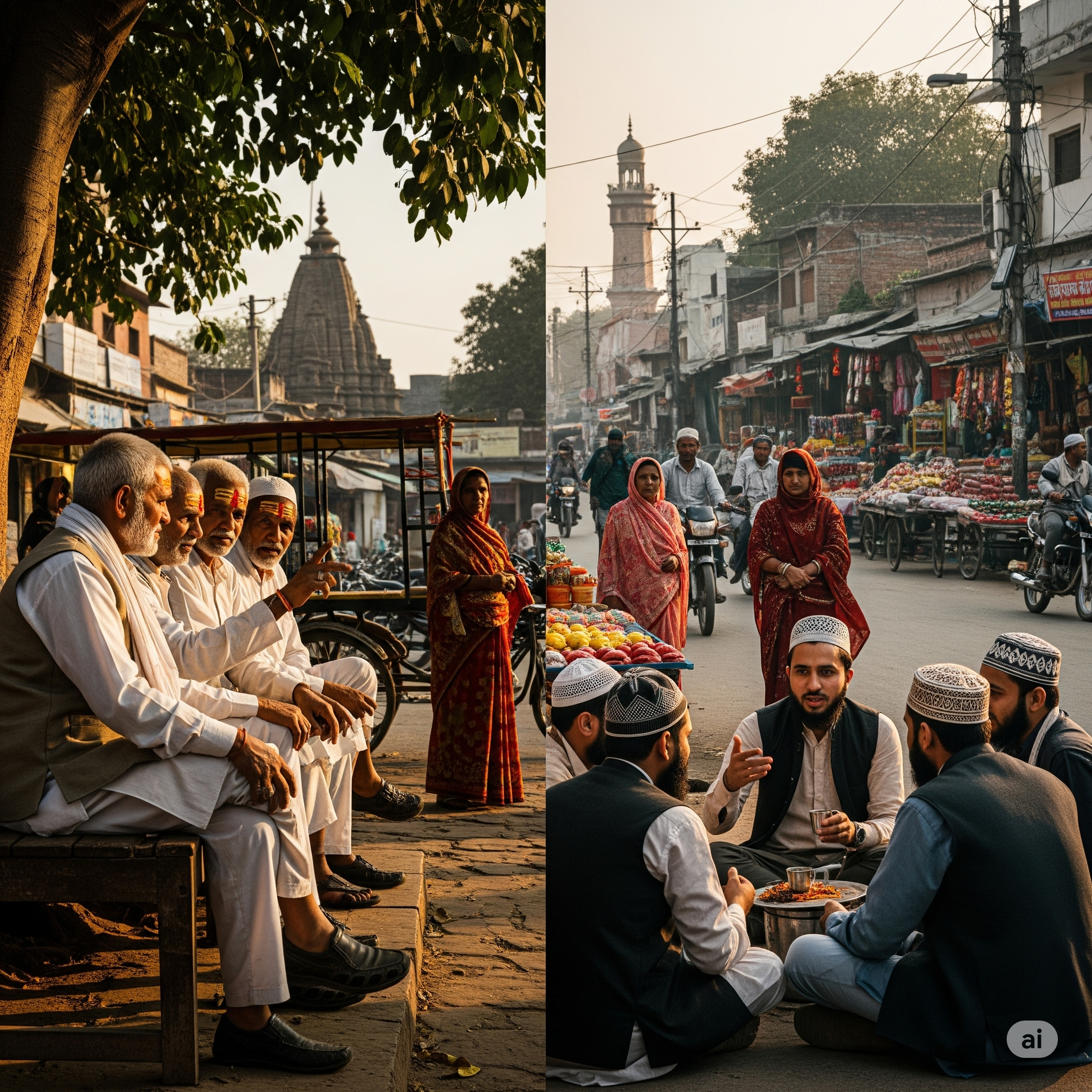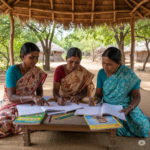
Navigating Moral Dilemmas: Philosophical Differences Among Communities in Uttar Pradesh
- admin
- August 13, 2025
- Philosophy, Uttar Pradesh
- 0 Comments
Cultural Traditions and Modern Challenges Collide in the State’s Grassroots
Lucknow – Uttar Pradesh, often referred to as India’s microcosm, is home to a diverse array of communities deeply influenced by philosophical traditions. From caste hierarchies and gender roles to interfaith relations, the state’s moral dilemmas are shaped by longstanding traditions and the realities of a rapidly modernizing society. These differences are reflected in grassroots challenges that impact governance, social cohesion, and individual rights.
Philosophical Tensions in Rural and Urban Governance
Dharma and Collective Responsibility in Rural Panchayats
The concept of dharma (duty) continues to guide rural governance in Uttar Pradesh, particularly in panchayats, which are often the primary authority in resolving disputes.
- Local Governance: Panchayats in regions like Banda and Hamirpur often prioritize traditional values in their rulings, which can sometimes contradict constitutional laws.
- Recent Example: Panchayats have issued rulings against inter-caste marriages, prioritizing community norms over individual rights.
- NCRB Data: Uttar Pradesh recorded 28 honor killings in 2022, the highest in the country, highlighting the social resistance to individual autonomy in relationships.
Urbanization and Shifting Norms
Urban centers such as Lucknow and Noida reflect a different dynamic, where education, technology, and modern values increasingly shape social interactions.
- Modern Trends: Younger generations in cities are challenging caste and religious biases, focusing on individual freedom and equality.
- Data Insight: According to a 2021 survey by the Indian Human Development Survey, over 30% of urban youth in Uttar Pradesh supported interfaith marriages, compared to 12% in rural areas.
Grassroots Challenges Across Communities
Caste and Social Justice
Caste hierarchies continue to influence access to resources and justice, particularly in rural Uttar Pradesh.
- Crimes Against Scheduled Castes (SCs): According to NCRB data, Uttar Pradesh recorded over 13,146 caste-related crimes in 2022, the highest in India.
- Land Disputes: In Akbar Nagar, tensions escalated when a panchayat favored dominant caste claims over legally allotted land to Dalit families, leading to protracted conflicts.
Gender Inequality
Traditional views on gender roles remain a barrier to women’s empowerment in both rural and semi-urban areas.
- Patriarchal Norms: Women often face restrictions stemming from cultural beliefs that emphasize family honor.
- Labor Force Participation: Female participation in Uttar Pradesh’s workforce stands at 18%, significantly lower than the national average of 25% (Periodic Labour Force Survey 2021-22).
- Education Barriers: Dropout rates among girls remain high in districts like Shravasti and Bahraich, despite programs like Kanya Sumangala Yojana, which aim to incentivize education for girls.
Religious Coexistence and Conflict
While the Ganga-Jamuni tehzeeb, a symbol of interfaith harmony, continues to thrive in some regions, tensions remain in others.
- Interfaith Celebrations: Cities like Lucknow and Varanasi witness interfaith participation during festivals such as Holi and Eid, highlighting shared traditions.
- Communal Tensions: Disputes over religious conversions and land use in Ayodhya and Mathura have occasionally strained relationships.
- Legislative Impact: Since the implementation of anti-conversion laws in Uttar Pradesh, over 100 arrestshave been reported, according to official state data.
Government and Grassroots Efforts to Resolve Dilemmas
Legal Interventions for Marginalized Communities
The Uttar Pradesh government has introduced several measures to protect marginalized groups and promote equitable justice.
- Scheduled Caste Finance Development Corporation: Provides legal and financial aid to Dalits involved in property and land disputes.
- Impact: Over 20,000 families benefited from this scheme in 2023.
Women’s Empowerment Through Mission Shakti
Mission Shakti has been a key initiative in addressing gender inequities across the state.
- Achievements: Over 1.5 crore women have received financial aid, legal assistance, and leadership training under the program.
- Safety Measures: Establishing 700 women-only police stations has improved access to justice for victims of domestic violence and harassment.
Interfaith Dialogues to Restore Harmony
Local NGOs and community leaders are working to foster interfaith harmony through grassroots initiatives.
- Success in Kasganj: Interfaith cultural forums in Kasganj reduced instances of communal violence by 30% in the past two years.
Moral Dilemmas and Philosophical Reflections
Individual Rights vs. Collective Good
Balancing personal freedoms with community interests is a recurring challenge in Uttar Pradesh.
- Example: Youth advocating for inter-caste or interfaith marriages often face backlash from traditionalists who view such unions as disruptive to social order.
Tradition vs. Modernity
The rapid pace of urbanization has introduced conflicting ideas about preserving cultural heritage while embracing progress.
Leadership’s Role in Shaping Morality
Political and community leaders play a critical role in either perpetuating traditional norms or advocating for progressive change.
Recommendations for Harmonious Progress
- Strengthen Education
- Expand legal awareness and gender-sensitive education programs in rural areas to challenge discriminatory norms.
- Encourage Inclusive Governance
- Train panchayat leaders on constitutional rights and equitable governance to address caste and gender-based disparities.
- Support Interfaith and Intercaste Dialogue
- Promote forums that encourage understanding and collaboration among diverse communities.
- Enhance Legal Protections
- Ensure robust enforcement of laws to protect marginalized groups from violence and discrimination.
Conclusion: Bridging Philosophical Divides
Uttar Pradesh’s diverse communities reflect a spectrum of philosophical traditions that both enrich and complicate its social fabric. The state’s ability to navigate these moral dilemmas, through education, inclusivity, and effective governance, will determine its capacity to foster social harmony.
By addressing these grassroots challenges and bridging cultural divides, Uttar Pradesh can evolve into a more equitable and cohesive society that respects both tradition and progress.


